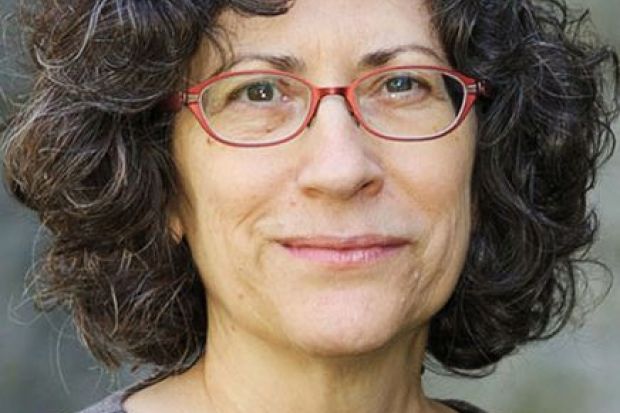What sorts of books inspired you as a child?
As a young reader, I found the puzzles and wordplay of Norton Juster’s The Phantom Tollbooth and Lewis Carroll’s Alice in Wonderland irresistible. My parents had a two-volume set of all the Sherlock Holmes mysteries, and I read and reread them compulsively. These books seem to be the seeds of my love of historical research as a form of detective work.
You new book about ‘librarians, soldiers and spies’ in Second World War Europe was inspired by discovering your uncle had been a spy. But which books offered initial pointers to the world you went on to uncover in ‘Information Hunters’?
The challenge for me was to understand not only wartime intelligence and information, but also books and libraries as a dimension of cultural heritage at a time of devastation. Robin Winks’ classic Cloak and Gown: Scholars in the Secret War, 1939-1961 and Barry Katz’s Foreign Intelligence: Research and Analysis in the Office of Strategic Services, 1942-1945 were enormously helpful in explaining how scholars became intelligence agents and spies in the Second World War. Michael Kurtz’s America and the Return of Nazi Contraband: The Recovery of Europe’s Cultural Treasures and a volume edited by Elizabeth Simpson, The Spoils of War: World War II and Its Aftermath, offered insight into cultural preservation and restitution after the war.
What good general accounts of the US civilians operating in Europe during the war would you recommend?
American civilians in wartime Europe were there largely under the authority of the military or intelligence services. Lynn Nicholas’ The Rape of Europa: The Fate of Europe’s Treasures in the Third Reich and the Second World War is a compelling account of the rescue efforts of the Monuments Men – curators, art historians and archivists committed to preserving European culture. An excellent book that connects the civilian lives and military service of one group of Americans is Deborah Dash Moore’s GI Jews: How World War II Changed a Generation.
Where can one turn for a good analysis of the ethical and practical issues around preserving documentation and data?
To correct for the presentism in much of the discussion of contemporary data preservation, I recommend Ann Blair’s Too Much to Know: Managing Scholarly Information before the Modern Age. Andrew Abbott’s Digital Paper: A Manual for Research and Writing with Library and Internet Materials offers insight into how scholars do qualitative research, with a strong challenge to cyberutopian information managers. On addressing ethical questions, I think often of Elazar Barkan’s broad discussion in The Guilt of Nations: Restitution and Negotiating Historical Injustices and its relevance for cultural heritage.
What is the last book you gave as a gift, and to whom?
I gave Orlando Figes’ latest book, The Europeans: Three Lives and the Making of a Cosmopolitan Culture, to my husband, a voracious reader with a long career in academic publishing. And as a birthday present, he receives a surprise book each month from the wonderful subscription service of London’s Heywood Hill bookshop.
What books do you have on your desk waiting to be read?
I’m eager to read two books that explore wartime intelligence and espionage: Steven Ross’ Hitler in Los Angeles: How Jews Foiled Nazi Plots against Hollywood and America and Matthew Avery Sutton’s Double Crossed: The Missionaries Who Spied for the United States during the Second World War. For fun, Joseph Kanon’s The Accomplice. And now that I’m homebound, it’s time to tackle William Vollmann’s Europe Central.
Kathy Peiss is Rory F. and Jeannette P. Nichols professor of American history at the University of Pennsylvania. Her latest book is Information Hunters: When Librarians, Soldiers, and Spies Banded together in World War II Europe (Oxford University Press).
后记
Print headline: Shelf life: Kathy Peiss


